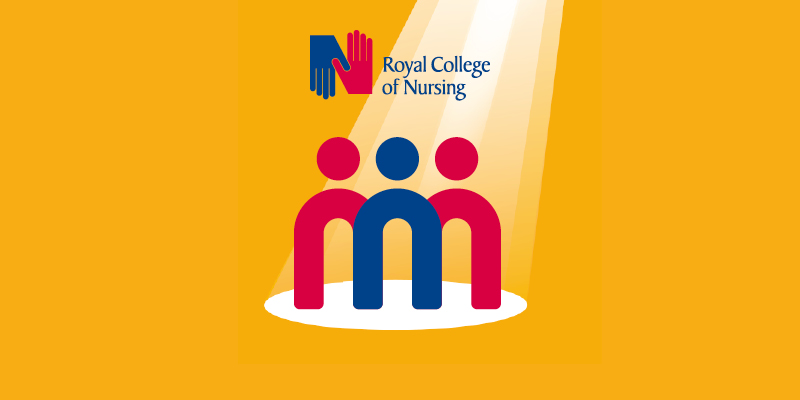Lynne started working as a health care support worker (HCSW) in prisons 10 years ago and has worked at HMP Durham for seven years. She works in a team of around 14 HCSWs, and a wider team of around 50 health care professionals.
HMP Durham is a remand prison and is one of the busiest in the UK, receiving 20 to 40 prisoners every day. Prisoners are housed at Durham on a short-term basis and tend to come straight from police custody or court and remain at Durham until they’re sentenced or released.
People in prison can expect health care that’s at least of the same standard as that which is provided in the wider community. Prisoners have access to a wide range of primary care services, including dentistry and GP services.
How would you describe your role in a sentence?
It’s like A&E behind closed doors.
What attracted you to prison nursing?
A friend of mine worked as a nurse in a prison, and I thought it sounded interesting, so I looked into it. I enjoy the challenge of learning new things and unusual working environments, so I applied for the job.
What are five things you do in an average week?
- Dry bloods spot testing at reception for hepatitis C alongside follow-up hepatitis C tests after a designated period of time. Durham is a hepatitis C-free prison, so regular testing is essential.
- Secondary hepatitis C screening. This is performed after a positive antibody screening test to confirm the presence of the virus and determine if the infection is current.
- Health promotion including events with third parties such as the Hepatitis C Trust and smoking cessation clinics.
- Work with the mental health and drugs and alcohol teams.
- Work with prisoners whose first language isn’t English to help them understand why they’re going to the various health appointments they may need to attend.
What things do you do in this role, that other nursing staff don’t?
I’m the only member of the team to run smoking cessation clinics here. I work in a smoke-free prison, so the clinics are held every day, and a lot of prisoners want to join. Their only other option is to use vapes.
I run an eight-week programme for individuals. My work includes explaining the benefits of giving up smoking, especially for individuals with chronic obstructive pulmonary disease (COPD) or asthma. The courses are well received, but I often don’t see the final results, as prisoners are only here for a short time until they’re sentenced or released.
What’s one thing people assume about your job that’s wrong?
There’s a perception that prison health care is dangerous but it’s not. I feel safer working in a prison than community health care. If anything happens on site we have a great team to offer support and a wider community of prison officers to help and offer protection. You also get to know your patients here, so are able to build trust with them.
Prison Nursing Unlocked
Take a look at the RCN exhibition which explores the little-known history of prison nursing and the vital contribution that nursing staff make to prisoner welfare today.
The role of the prison nurse has a surprisingly short history. As late as the 1990s, most prisoners received nursing care from prison officers with basic health care training.
Prison Nursing Unlocked has been co-created with RCN members, many of whom work as prison nurses or have done in the past.
Any specialist equipment or procedures?
There are security regulations we must adhere to. For example, you can’t wear a smart watch because it can connect to your phone. It’s illegal to take a mobile phone into a prison so you can’t carry one, or any kind of recording device or batteries.
Every wing has a red bag (emergency response kit) and equipment designed to keep people alive, such as oxygen and a defibrillator.
What are five key qualities you need to do this job?
- Versatility and an ability to work as part of a team.
- Good communication skills.
- Excellent listening skills.
- Compassion.
- Resilience.
What’s most challenging about the job?
You don’t know what to expect on any day. If a code red or blue message comes through on your radio advising you of an emergency, you must move fast. Health care support workers may be first on the scene, alongside registered nurses.
On a quieter day, we get around four code messages, but we can get up to 20 a day. A code blue is for someone who’s not breathing, and a code red signifies there’s a bleeding issue.
Every day is a learning curve
You do see things you would prefer not to, so I’m grateful that everyone in the nursing team supports each other. You also must stick to the prison routines and rules. That’s a learning curve in itself.
And most rewarding?
I like helping our patients at HMP Durham and enjoy supporting the nursing team to do an essential role. Prisoners always want to talk to you. Some may be feeling down or need advice.
What would you say to another nursing support worker who's thinking of working in this field?
It’s a challenging and rewarding role, working with amazing people, where every day is a learning curve and no day is ever the same. Don’t come into the role thinking it will be easy, but I’d advise trying it for a year to see if it’s the right career path for you. I’ve never regretted my decision to work in a prison.
We also recommend reading
- Find out more about the RCN Nursing in Justice and Forensic Health Care Forum.
- Read our feature on nursing behind locked doors.
- Take a look at the RCN's Dementia Care Principles for People in Prison.








